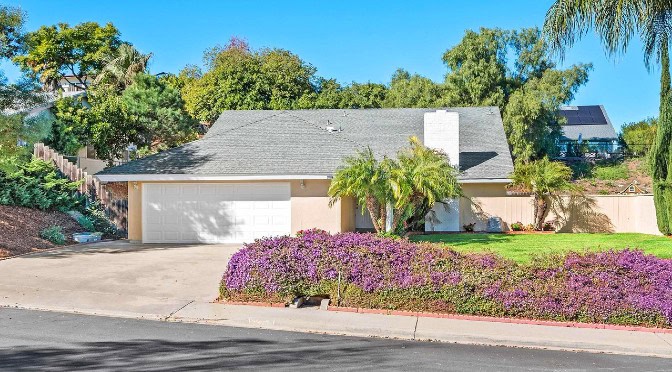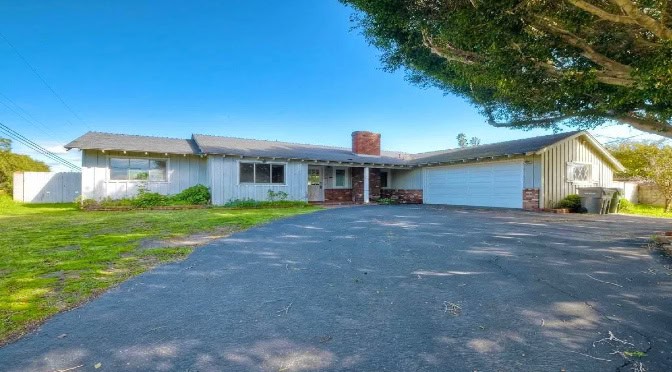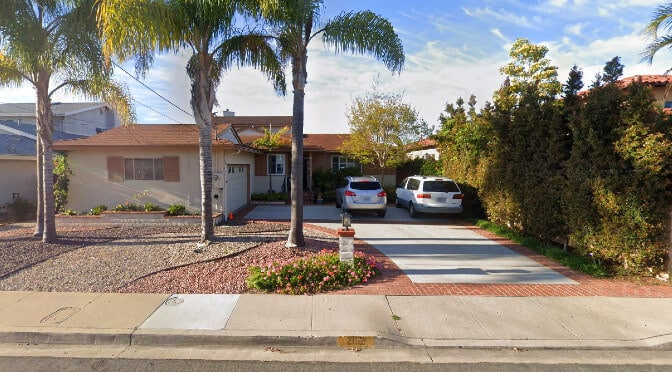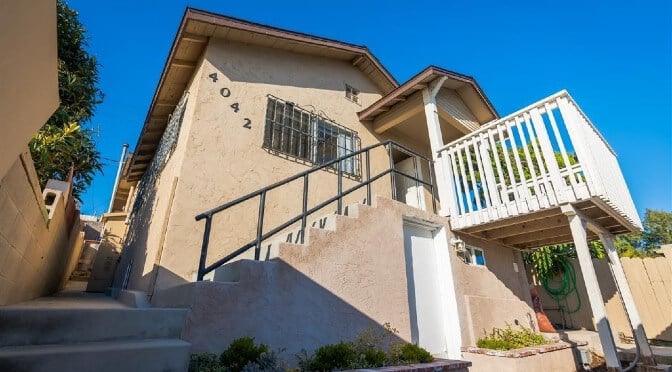
Top 3 Advantages and Disadvantages of Hard Money Loans
A hard money loan is a specialized financing tool that is most often used by professional real estate investors. Veteran real estate investors know the ins and outs of hard money loans, but less experienced investors need to educate themselves on the subject so they can make the best decision for their specific project. Before applying, a potential borrower should know the main advantages and disadvantages of using a hard money loan.
Top 3 Advantages of Hard Money Loans
1. Hard Money Loans Are Approved And Funded Quickly
One of the biggest advantages of using a hard money loan is the speed at which loan approval and loan funding take place. In many cases the approval for the hard money loan can take place in just one day. The hard money lender is going to consider the property, the amount of down payment or equity the borrower will have in the property, the borrower’s experience (if applicable), the exit strategy for the property and make sure the borrower has some cash reserves in order to make the monthly loan payments. As long as everything seems reasonable in these areas approval will most likely be granted.
Real estate investors who haven’t previously used hard money will be amazed at how quickly hard money loans are funded compared to banks. Hard money loans can be funded with 3-5 days if needed. Compare that with 30+ days it takes for a bank to fund. This speedy funding has saved numerous real estate investors who have been in escrow only to have their original lender pull out or simply not deliver. This is a perfect situation for a hard money lender to step in, provide financing quickly and save the deal.
2. Hard Money Loans Have Few Requirements
As discussed previously, hard money lenders have few requirements, especially when compared to bank loans. They include the borrower having sufficient equity in the property, enough cash on hand to make the monthly payments, a reasonable exit strategy and ample experience if needed. Fewer requirements means higher likelihood of loan approval. Banks have lengthy lists of requirements a borrower must meet in order to qualify for financing and are known for saying “No” more than “Yes”. Their list of requirements increases each year and many of them seem arbitrary.
Banks also have a list of issues that will raise a red flag and prevent them from even considering lending to a borrower such as recent foreclosures, short sales, loan modifications, and bankruptcies. Bad credit is another factor that will prevent a bank from lending to a borrower. Most banks will not lend to a borrower who already has 4 mortgages even if the borrower’s credit is perfect with no other issues.
Luckily for real estate investors who may currently have some of these issues on their record, hard money lenders are still able to lend to them. The hard money lenders can lend to borrowers with issues as long as the borrower has enough down payment or equity (at least 25-30%) in the property. This 25-30% equity is the security for the loan that ensures the borrower is going to make the agreed upon monthly payments and also make the balloon payment (usually via sale or refinance) at the end of the loan term.
In the case of a potential borrower who wants to purchase a primary residence with an owner-occupied hard money loan through a private mortgage lender, the borrower can initially purchase a property with hard money and then work to repair any issues or wait the necessary amount of time to clear the issues. Once the issues have been remedied, the borrower will be able to refinance to a lower cost loan with a conventional lender such as a bank or credit union.
Banks are also unwilling to provide home loans to borrowers who are self-employed or currently lack the required 2 years of employment history at their current position. The borrowers may be an ideal candidate for the loan in every other aspect, but these arbitrary requirements prevent banks from extending financing to the borrowers. A hard money lender would be able to provide a short term loan (1-3 years) to enable the borrower to purchase their property. In the case of the borrower without sufficient employment history, they would be able to refinance out of the hard money loan and into a lower cost conventional loan once they obtained the necessary 2 years at their current position.
3. Hard Money Loans Provide Funding For Projects That Cannot Be Financed Elsewhere
Hard money lenders provide many loans that conventional lenders such as banks have no interest in financing. A good example of this is a fix and flip loan. These projects involve a real estate investor purchasing a property with a short term loan so that the investor can quickly make the needed repairs and updates and then sell the property. In most cases, the real estate investor only needs a 12 month loan. A 12 month term doesn’t work with a bank’s business model. Banks want to lend money for the long term and are happy to make a small amount of interest over a long period of time.
There may be numerous issues with a property that may prevent the property from qualifying for a traditional bank loan. The issues could be related to foundation, electrical or plumbing and could cause the bank to consider the property uninhabitable and unable to be funded. Banks are extremely risk-averse lenders and are unable to consider a loan scenario that is outside of their strict lending criteria. A hard money lender would be able to provide a borrower with a loan to purchase a property that has issues preventing it from qualifying for a conventional bank loan. The borrower could then make the necessary repairs and refinance with a bank loan.
Top 3 Disadvantages of Hard Money Loans
While the speed, low requirements and flexibility of hard money loans ensures real estate investors have the capital they need to complete their projects, there are some aspects of hard money loans that can be considered less than ideal.
1. Hard Money Loan Interest Rates Are Higher Than Bank Loans
Hard money loan interest rates are always going to be higher than a conventional bank loan. The higher interest rate is due to the increased risk for the lender and the convenience to the borrower of having immediate access to capital. Interest rates for hard money loans are generally going to range from 9-15% depending on various factors. Hard money lenders also charge a loan origination fee which are called points, a percentage of the loan amount. Points usually range from 2-4 although there are lenders who will charge much higher points for specific situations.
Certain areas of the country have many competing hard money lenders while other areas have few. As with anything else, competition brings prices down. In large metropolitan areas there are usually many more hard money lenders willing to lend than in more remote rural areas. Borrowers can benefit greatly from checking rates at a few different lenders before committing to a hard money lender.
While not all hard money lenders offer 2nd mortgages or trust deeds on properties, the ones who do charge a higher interest rate on 2nds than on 1sts. Interest rates on 2nds are usually 2-3% higher than for 1sts. This increased interest rate reflects the increased risk for the lender being in 2nd position rather than 1st. If the borrower goes into default, the 1st lien holder can foreclose on the property and wipe out the 2nd lien holder’s interest in the property.
2. Hard Money Loans Are For Short Term Use Only
Most hard money loans are written for 1-2 years. Longer terms of 3-5 years are available but that is generally the upper limit for loan term length.
The longer the loan term the more risk the lender is taking on since it is unknown where interest rates will move to by the end of the term. If interest rates drop, the borrower has the option of refinancing to the lower current rates. If the interest rates increase, the borrower is able to keep their lower interest rate loan and lender is forced to wait until the loan becomes due. While the lender is waiting for the loan to become due, their investment in the trust deed is yielding less than what they could receive for a new trust deed investment at current rates. This represents a risk to the lender and encourages them to offer only shorter terms.
Banks deal with interest rate uncertainty by offering lower interest rates for shorter terms and higher interest rates for longer terms. For example, a 30 year fully amortized loan is going to have a much higher interest rate than the 15 year fully amortized loan.
3. Hard Money Loans Require A Down Payment Or Equity Of At Least 25-30%
Some borrowers view down payments or equity requirements as a detriment that prevents them from obtaining a loan. Hard money lenders are able to look past many issues and shortcomings, but only because they are requiring sufficient equity in the property to act as security for the loan. “Hard money” uses the “hard” asset to secure the loan, while banks focus primarily on income, a clean credit report and FICO scores. With hard money, no down payment equals no loan.
Without a sufficient down payment or equity the hard money lender is essentially taking on all the risk. If the borrower only puts down a 5% down payment and receives a loan for the remaining 95%, a 10% drop in the property value would put the borrower at a 5% loss on the property. If the borrower thought the decline would continue or the property value would not increase in value in the near future, the borrower would have little incentive to complete the project and may abandon it, default on the hard money loan and leave it to the lender to clean up the mess. This is a worst case scenario for the hard money lender.
In a similar scenario where the borrower puts in a 30% down payment (instead of only 5%), a 10% decline in the value of the property still gives the borrower plenty of incentive to stick with the property and project to protect their equity.
Commercial hard money loans often have a larger minimum down payment requirement of 40%. The larger down payment requirement reflects the increased difficulty in selling a commercial property, as there are far fewer buyers for commercial properties compared to residential properties. If a borrower defaults on a commercial hard money loan and the property is taken back by the hard money lender, the sale price may have to be discounted significantly so the lender can recoup their investment with a quick sale. Commercial properties are also more difficult to value as there are fewer data points to work with when compared to residential.
For any questions regarding hard money loans please contact Don at 760-722-2991 or don@northcoastfinancialinc.com
Recent Hard Money Loans Funded by North Coast Financial
CA Hard Money Loan Request
We will contact you to review the loan scenario and provide a quote.




